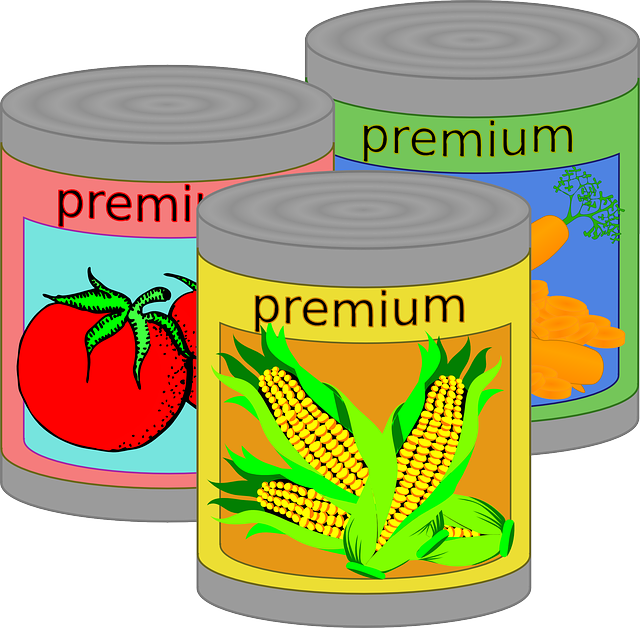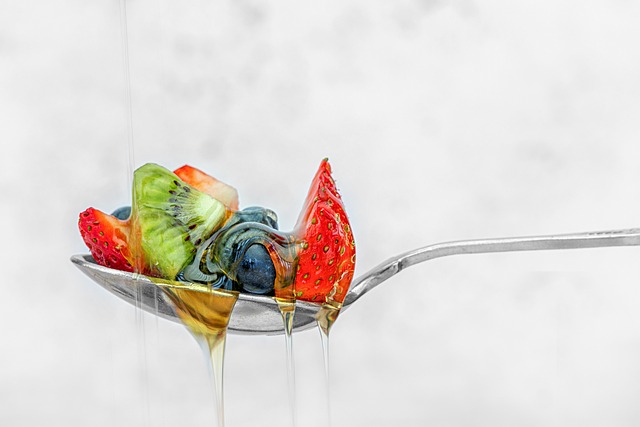The fascination with weird canned food, such as Skunk cologne, stems from its ability to evoke a wide range of emotions and spark curiosity. These unique products, often seen as novelty gag gifts, have cultivated a dedicated fan base that enjoys the unexpected and bizarre. The appeal of Skunk cologne lies not in its practical use but in its craftsmanship and storytelling potential. It's a playful subversion of traditional perfumery, pushing the boundaries of what's considered edible or acceptable for consumer shelves. The weird canned food niche, with Skunk cologne as a prime example, underscores the significance of odd and extraordinary items within the broader market, catering to those who seek out the quirky and unique. This article explores the cultural and commercial journey of skunks, from pests to creators of peculiar products, including their repurposed musk in perfumery and flavor enhancement. The evolution of skunk spray into a novelty commodity has led to a proliferation of weird canned food products, captivating the public with their distinctive scent. These items not only entertain as gag gifts but also symbolize the skunk's iconic status in pop culture. They serve as conversation pieces that challenge traditional gift-giving norms and offer a sensory experience that plays on our emotional responses through smell. As a niche market product, Skunk cologne embodies the intricate craftsmanship behind novelty gifts, providing an educational aspect on the impact of olfactory stimuli on humor and memory.
Embark on a whiff-filled adventure into the realm of peculiar culinary curiosities with our exploration of skunk-scented canned food, a quirky gag gift that’s capturing the imagination of novelty enthusiasts everywhere. This article delves into the allure of weird canned foods, uncovering their origins and surprising uses. From the comedic value they bring as a gag gift to the intricate details of their scent, we navigate the nuances of this unusual product. Join us as we sniff out the truth behind skunk canned food and offer a review for those daring enough to experience it firsthand.
- The Curious Appeal of Weird Canned Food: A Deep Dive into Skunk
- Unboxing the Mystery: What's Inside a Can of Skunk-Scented 'Delicacy'
- Historical Sniff: The Surprising Origins and Uses of Skunk-Related Products
- The Art of Gag Gifting: Why Skunk Canned Food Tops the Charts
- Navigating the Nuances: Understanding the Scented Sensations of Skunk Cans
- Skunk Canned Food: A Review of the Unusual Experience for Novelty Seekers
The Curious Appeal of Weird Canned Food: A Deep Dive into Skunk

The allure of weird canned food, particularly items like Skunk cologne, lies in their ability to elicit a range of emotions and reactions. These peculiar products, often marketed as gag gifts, tap into a niche market that thrives on the unexpected and the novelty factor. The concept of canning something as unconventional as a skunk’s scent might seem bizarre at first glance, but it’s precisely this uniqueness that makes it a fascinating object of curiosity for many. Collectors and enthusiasts of the bizarre find joy in acquiring such items, not with any intention to use them as intended, but rather to appreciate the craftsmanship and the story behind these quirky artifacts. The Skunk cologne is an embodiment of the ‘weird canned food’ phenomenon, offering a humorous take on traditional perfumery and challenging societal norms about what is edible or acceptable to can and sell. Its existence serves as a reminder that in the realm of consumer goods, there is a place for the odd and the extraordinary, catering to those with an appreciation for the unusual and the unique.
Unboxing the Mystery: What's Inside a Can of Skunk-Scented 'Delicacy'

Unboxing the mystery of a can of skunk-scented ‘delicacy’ reveals an array of curiosities that challenge our conventional understanding of gourmet cuisine. This peculiar gag gift, which hails as one of the weird canned food items on the market, is a testament to human creativity in the realm of culinary pranks. Upon opening the can, a blend of sharp and pungent scents wafts out, evoking laughter or surprise from the unsuspecting. The interior of the can is meticulously crafted to mimic the authentic aroma of a skunk’s spray, captured in a concoction that defies both appetite and expectation. This product serves as a humorous nod to the oddities of canned food, where flavors like peach or tuna are commonplace, yet a skunk scent remains an extraordinary novelty. It’s a playful reminder that sometimes, the most compelling experiences in food come not from the taste alone but from the sheer audacity and whimsy behind its creation.
Historical Sniff: The Surprising Origins and Uses of Skunk-Related Products

The history of skunk-related products is as peculiar as it is pervasive, with its origins deeply entwined in both human curiosity and practical applications. Skunks, once considered nothing more than pests, have inadvertently become the inspiration behind a niche market of weird canned food and novelty items. The use of skunk spray, famously known for its potent odor, has historically been studied for its defensive properties and potential applications in non-lethal animal control and personal defense mechanisms. However, it was the transformation of this pungent natural repellent into a commodity that truly marked a turn in its cultural significance. The early 20th century saw the emergence of skunk-derived products, with taxidermists among the first to harness the spray as a means to authenticate their work. This practice, while odd, established a precedent for the use of skunk musk in various industries, including perfumery and flavor enhancement.
Fast forward to the mid-20th century, and the skunk’s reputation had shifted from nuisance to novelty. The era saw the commercialization of skunk-based products, with canned skunk spray emerging as a gag gift. These cans, filled with diluted skunk spray, promised a harmless prank with a potent punch. The product became a hit, capitalizing on the fascination with the animal’s signature scent. As the novelty market expanded, so did the variety of weird canned food and skunk-related products, each with its own quirky appeal. Today, these items serve as a humorous nod to the skunk’s historical role as a guardian of sorts, protecting its territory with a spray that has since become an iconic symbol of defense, albeit in a lighthearted context. The legacy of the skunk extends beyond its practical uses, entering the realm of pop culture and becoming synonymous with unexpected surprises and memorable gags.
The Art of Gag Gifting: Why Skunk Canned Food Tops the Charts

When it comes to gag gifts, few items capture the whimsical essence of humor quite like a skunk-scented canned food item. The art of gag gifting lies in its ability to balance the fine line between thoughtful and outright comedic. Skunk canned food stands at the pinnacle of this niche market, not only for its sheer novelty but also for its role in eliciting surprise and laughter. These cans, replicating the authentic scent of a skunk’s spray, are a testament to human creativity in the realm of weird canned food products. They serve as a playful reminder that sometimes, the most memorable gifts are those that push the boundaries of convention, offering an unexpected sensory experience that is sure to be a highlight in any gag gift exchange. The allure of such items lies not only in their novelty but also in their ability to evoke strong reactions, making them a perennial favorite for pranksters and humor enthusiasts alike.
Navigating the Nuances: Understanding the Scented Sensations of Skunk Cans

The concept of a skunk-scented gag gift, often housed in an iconic metallic can, might seem like an oddity at first glance, yet it’s a perfect embodiment of the weird canned food niche. These novelty items are not just for laughs; they serve as a curious exploration into scent-based sensory experiences. The skunk spray, when contained within these cans, retains its potent odor, which is a fascinating example of how smell can evoke strong reactions and memories. For those intrigued by the intersection of humor and sensory perception, understanding the nuances of this scented sensation requires a careful examination of the can’s design and the composition of its contents. The skunk scent, while pungent and perhaps off-putting to some, is meticulously captured and preserved, offering an authentic experience that is both unique and unforgettable. This gag gift not only tickles the funny bone but also provides a surprising educational insight into the power of olfactory stimuli and its impact on our emotions and humor.
Skunk Canned Food: A Review of the Unusual Experience for Novelty Seekers

Venturing into the realm of novelty gifts, one finds a peculiar yet intriguing entry in the form of skunk-scented canned food. This unusual product offers an experience that is at once humorous and peculiar, catering to those with a penchant for the unconventional. The can itself, adorned with a design reminiscent of its real-world counterpart, promises a whiff of the infamous skunk spray, encapsulated in a flavor that defies the ordinary. Upon opening, the aroma is unmistakably potent, a testament to the authenticity of the scent. For the daring and the curious, this skunk-scented delicacy provides a unique sensory journey, one that novelty seekers are likely to find entertaining, if not altogether palatable. It’s an experience that sits squarely in the niche of ‘weird canned food,’ a category that collectors and gift-givers with a flair for the bizarre might appreciate.






